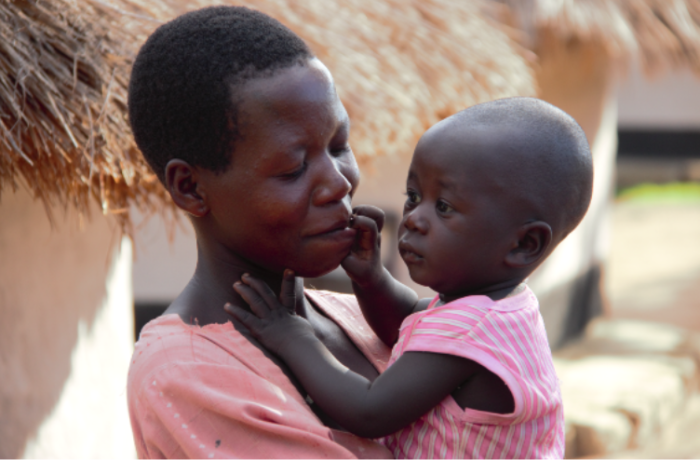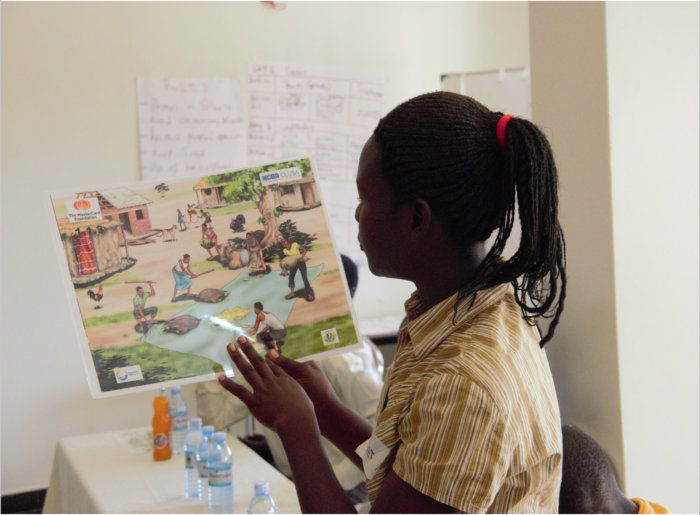
Uganda faces the highest youth unemployment rate in sub-Saharan Africa; youth account for 80% of the country’s unemployed.[i]Seventy percent of Ugandan youth live on less than $2 a day. The country suffers from a major gender gap among youth as well. Girls are more disadvantaged than boys in terms of accessing resources and education – many drop out of school, “due to pregnancy, distance to schools, parent’s attitudes towards girls’ education, and inaccessibility of vocational training due to cost.”[ii]Youth in northern Uganda have been referred to as the “lost generation.”
If youth are unable to access opportunities including education, skills and jobs, peace and security could be put at risk. More than anything, Ugandan youth represent an opportunity to create a positive future for the country, as youth bring new ideas, adopt technologies, reinvest back into their communities, and demonstrate the wider societal benefits from a demographic dividend.
In response, NCBA CLUSA in partnership with the MasterCard Foundation is implementing a five-year program for youth between the ages of 15 to 24 in the districts of Masindi, Kiryandongo, Kole and Dokolo in northern Uganda. The Youth Empowerment Through Agriculture (YETA) project is helping youth develop sustainable commercial enterprises through agricultural businesses. The YETA consortium includes a number of partners: NCBA CLUSA, Reproductive Health Uganda (RHU), Youth Alive, Aflatoun, Making Cents International and a number of financial partners.
This consortium brings together the unique skill assets and experience of partners, combining extensive expertise in agriculture and agri-business, conservation farming, youth development, youth skills training, financial services access, reproductive health, and community mobilization in order to engage and work with youth associations and cooperatives to build sustainable agricultural enterprises.

YETA has four objectives: 1) Youth Associations (YA) are formed and strengthened; 2) YA members have improved well-being and confidence through enhanced foundational skills; 3) YA members have access to increased financial services; and 4) YA members develop the technical and entrepreneurial skills to launch their businesses. Each objective represents a core element of the training program that underpins the program’s theory of change. For northern Ugandan youth, the transformation from living in poverty to being successful entrepreneurs has been dramatic mobilizing 27,130 youth and helping them form 813 Youth Associations through which they accessed markets, finance, land, and incomes, while advancing their businesses.
The YETA model layers two fundamental innovations that were developed previously under NCBA CLUSA’s Uganda Conservation Farming Initiative program, funded by the U.S. Department of Agriculture. First, YETA integrated Foundational Training in literacy, numeracy, life skills, and reproductive health to better prepare youth to deal with the personal and professional challenges they will face as empowered adults maintaining sustainable livelihoods. Second, YETA integrated an innovative Learn, Engage, Build model. Youth who participated in the program learned concepts they could relate to everyday life (Learn), apply those concepts under a mentor’s guidance (Engage) and receive support and encouragement to experiment on their own (Build).
In the coming weeks, NCBA CLUSA will highlight the outcomes of the YETA project through the results of the effectiveness study created by NCBA CLUSA’S HQ Monitoring & Evaluating team. The major outcomes that will be highlighted include improved sexual and reproductive health amongst YETA youth, improved entrepreneurial behavior, and strengthening of cooperatives.
[i]International Youth Foundation. Navigating Challenges, Charting Hope: A Cross-Sector Situational Analysis on Youth in Uganda.
October 2011, Executive Summary.
[ii]Ibid. (IYF), page X.


